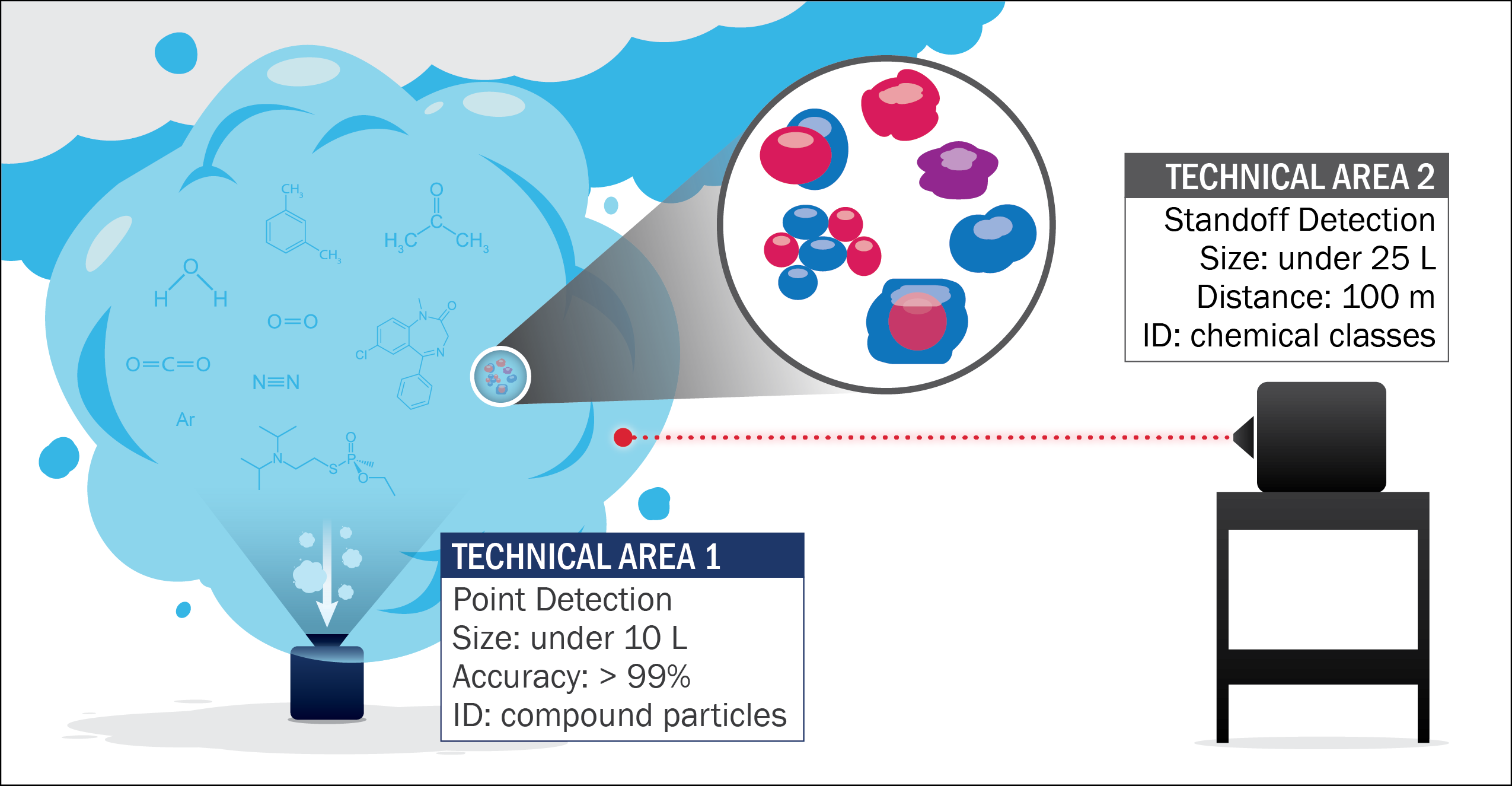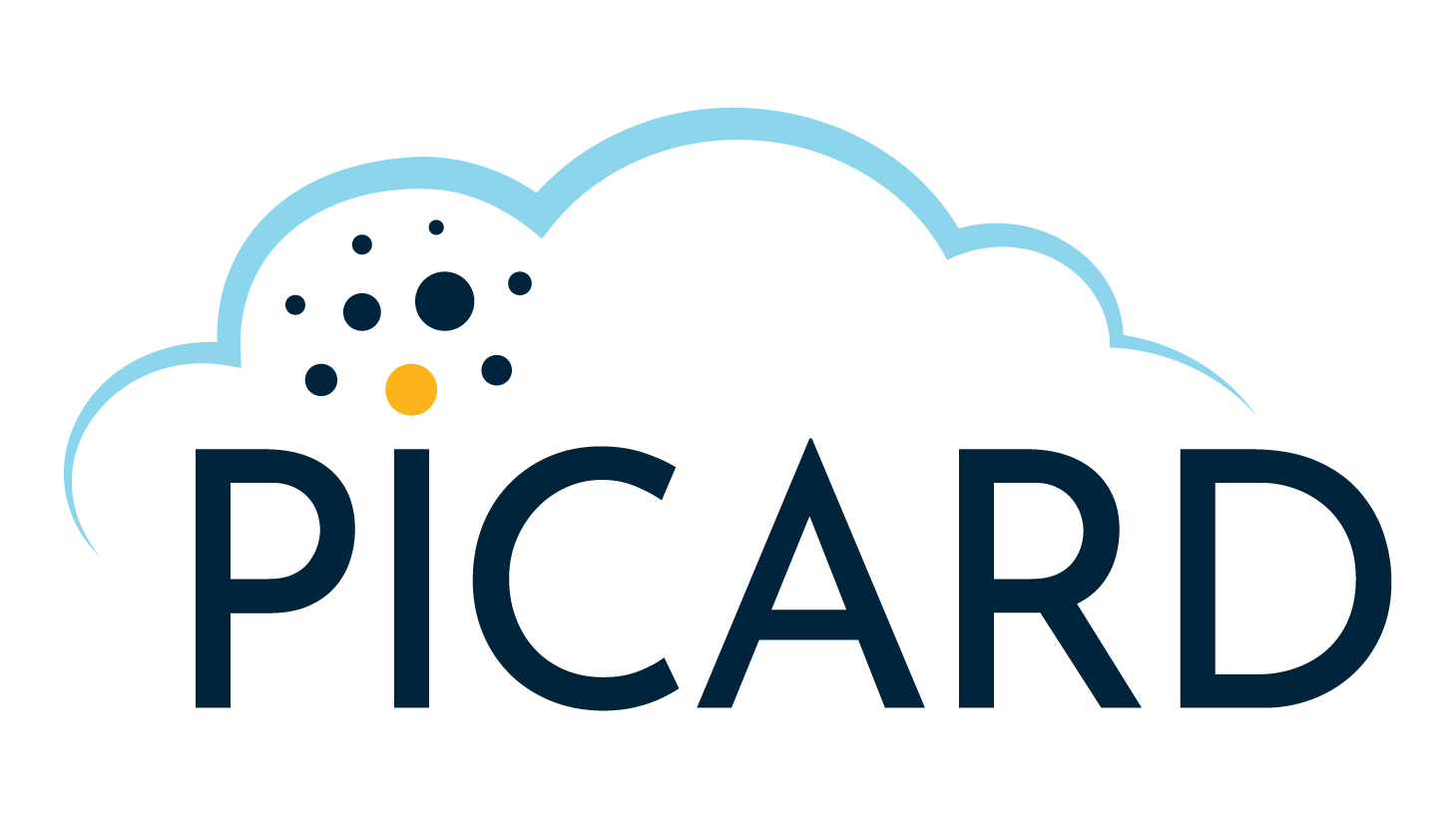Intelligence Value
The PICARD program aims to develop a fieldable sensing platform for the rapid identification of aerosol particles with complex chemical and physical characteristics in challenging environments. The need to distinguish chemical threats from common background chemistry is critical to national security as many threat materials are or can be dispersed as aerosols.
SUMMARY
The goal of the PICARD program is to develop sensors that rapidly identify aerosol particles in challenging environments. Aerosols may be comprised of multiple chemical components, multiple phases of matter (liquid, solid, or both), and mixed in a variety of configurations (see image to the right) making them both a chemical and physical challenge. Additionally, environmental parameters must be considered when identifying aerosols; temperature, humidity, wind, and topography may significantly affect the presence of aerosol particles.
The PICARD program is focused on developing integrated sensors (from sampling through analysis) that are capable of addressing chemical mixtures and morphologies over a large range of particle size distributions with high sensitivity and accuracy in complex environments. There are two technical areas (TAs) in the PICARD program:
- Point (in situ) Detection (TA1): collection of aerosol particles and full chemical identification of each species present. The Limit of Detection goal is < 5 µg/m3 in a device 10 L and 10 kg or smaller.
- Standoff Detection (TA2): identification of chemical classes present in an aerosol plume from a distance of up to 100 m away. The Limit of Detection goal is < 0.01 mg/m3 in a device 25 L and 30 kg or smaller.
The program is intended to be a 42-month, two phase effort. During the 18-month Phase 1, technology will be evaluated in controlled environments with an emphasis on sensitivity and selectivity with manual control of algorithms. During the 24-month Phase 2, technology will be evaluated in increasingly complex scenarios, both indoor and outdoor, with an emphasis on rapid identification using automated algorithms.

HYBRID PROPOSERS' DAY INFORMATION:
PICARD Proposers' Day Registration site
PICARD Proposers' Day: Monday, September 26, 2022 from 10:30am to 5:00pm EDT

